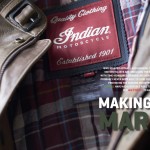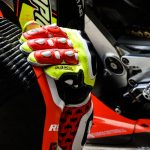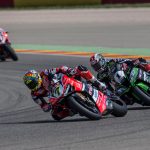MotoGP. When you see episodes like front brake effrontery, the sensationalism of barges in Argentina, witness high-profile team switches, resurrections of riders supposedly slipping towards mid-pack mediocrity and a myriad of other ways in which pressure, adoration, expectation and competition can influence an individual’s mind and character then the sport is a fiercely bubbling melting pot.
Most of the cast of MotoGP can talk lucidly about their vocation and some of the craziness it entails – they’ve had plenty of practice. Red Bull KTM’s Bradley Smith is normally a good target for anybody seeking some revealing insight into what really goes through the thoughts of individuals engaging in a highly specialised sport.
The Englishman has had his highs and lows. 125cc Grand Prix wins, Moto2 struggles, MotoGP uncertainty and then fine achievement (his emotions after a podium finish at the 2014 Australian Grand Prix is still a great contrast to the customary almost-matter-of-fact happiness from the likes of Marquez, Lorenzo, Rossi & co). He then opened KTM’s MotoGP chapter in 2017 while still recovering from knee injury and suffered speculation on his future causing thoughts of retirement to surface this year once Johann Zarco had been announced as his replacement in the factory team A testing role with Aprilia will keep the knowledgeable 27 year old at the front line and on the fastest motorcycle machinery available.
We find Brad at one of the high-set tables in the opulence of the Red Bull Energy Station and pleased to tuck into a discussion that doesn’t centre on his future or the settings of the ever-evolving RC16. Another reason we wanted to talk to Smith is that he had hinted in previous interviews that the mental side of training and his job was an area of particular interest. He thoroughly examined the zone of ‘marginal gains’ and that included taking a long look in the mirror.
Hitting the red button on the MP3 recorder led to a revealing and personal conversation…
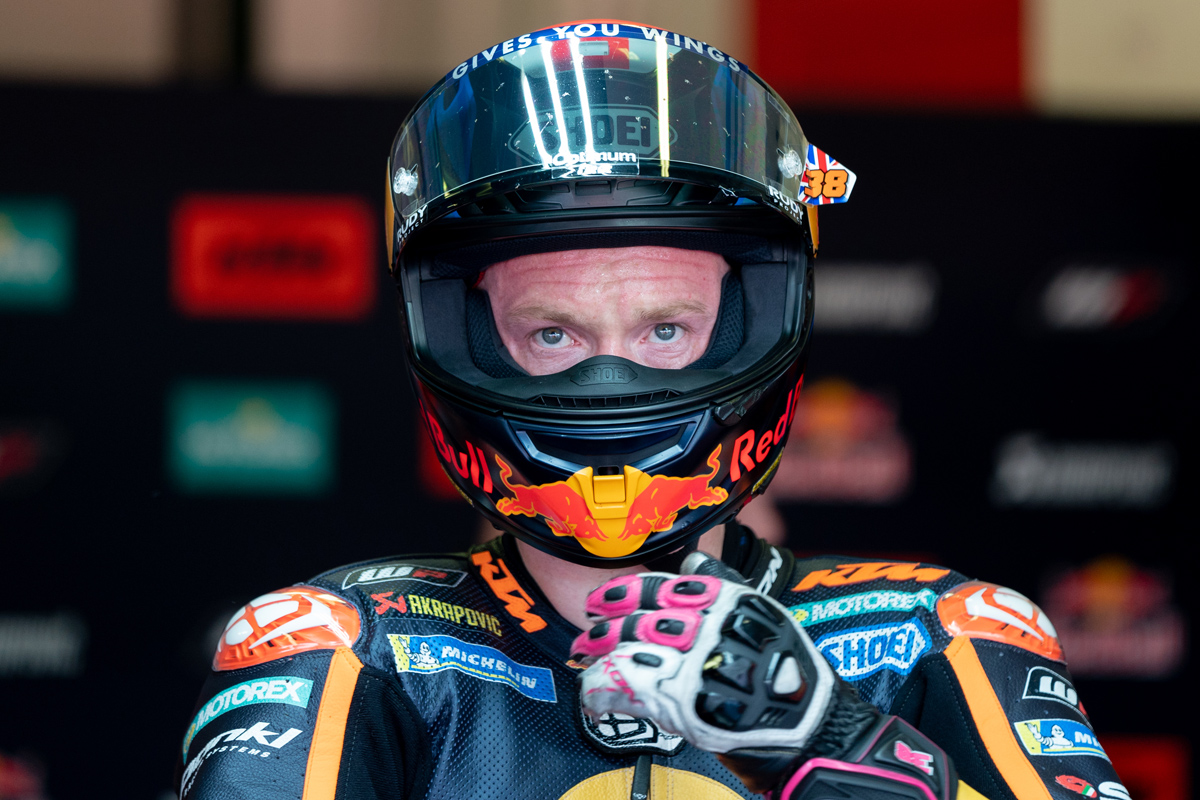
What was the motivation for you delve into mental preparation, psychology and to learn about yourself?
Mainly education and learning why you feel the way you feel and how you can manage those types of thing. Everyone’s brain is a little bit different and people react in different ways. The great thing about the Steve Peters’ book ‘The Chimp Paradox’ is that it explains it in a very simple way. You identify what type of person you are and I did that straight away; it was super-clear, and then how do I feel, how do I react and how do I deal with everything. I didn’t necessarily want someone to tell me how I should cope. I wanted to understand it myself. I was quite an aggressive person and went ‘off’ on certain things and could not accept things the way they were. I let my chimp escape out of the box quite a lot and it did too much damage. I pissed people off and was stubborn and couldn’t see clearly.
The mental side is a big part of this world and, as a rider, you are supposed to be a leader. But you also need to learn that your way is not always the best, and you need to learn how certain people react to things. You can get the best out of some people by shouting at them ‘you’d better fix this blah, blah, blah’ and there are others that completely shut off to that. It’s about learning how to tap into that final 10% of knowledge, care, interest and motivation. People will always do their best when they are motivated and that’s not just me as a rider but all the people in the team; they’ll spend that extra hour twiddling with the bike or going through the data or looking at other bits and pieces. It’s about being wanted and welcome in that team environment. It is such an important thing.
So you work on yourself to ultimately affect others…?
It is a big thing…but it is your job. There are certain riders who are happy to be by themselves and they win or lose. I like to have an impact on people and I want them to feel they are making a difference. That group and family feel becomes better. It also means it is good on the good days but also good on the bad days because you are together. They are looking for how to make improvements, and you feel there is ‘belief’: which is key. Just look at Jorge [Lorenzo] and Ducati this year: he left because he didn’t feel the belief. Maverick is changing Crew Chief because he doesn’t feel the belief. ‘Belief’ is everything and that’s psychology. This [Red Bull KTM] is a thirty-man team and my job is not to motivate all thirty but to at least motivate five, who then motivate another five and you have a compound effect. You then feel that you cannot be the weakest link and you raise your game accordingly. It is something that doesn’t necessarily help towards performance or the final race result but it helps a damn sight more for the environment you are in and things like peace of mind and stuff people don’t usually ‘see’. You also need to bear in mind that everyone is here to give their best in these team environments. They are here because they want to be here but they are also away from family and everyone is giving a lot. It is not a 9-5 job so how do you keep them interested, motivated, positive and all that type of stuff? That for me is the interesting thing to learn.
When did the benefits of self-analysis and working out who you are and what you imparted come to light?
It hit home for me in 2014. I was out of a ride. It was like I had a deck of cards and I wanted to be able to play more than one; whether I had to be aggressive and stubborn or compassionate and understanding or focus completely on team morale. I wanted to be able to play different cards and in 2014 I was not fun to be around. Randy Mamola clipped me around the head a few times and said to me ‘you’re an arse and no one wants to work with you’. People can kinda tolerate that if you are winning, but I wasn’t! I was a 6th-10th place guy. He told me to work on it and I stumbled across the [Peters] book. Stubbornness said ‘I don’t need a psychology book’ but I read it and it really opened my eyes and over the years I have been able to tap into more. I think it makes you more of a rounded human being. If you want the longevity of a career then you cannot be an arse. I think Valentino has done this very well in terms of how he reacts to his team, his group, his fans then his perception given to the media and his openness. He has been able to master all of this and it helped create this iconic person that is not necessarily the fastest at the moment but definitely the most popular.
You talk a lot about the team but most people assume that racing is a lonely ‘job’…
Many times you question ‘is it worth it?’ There are highs and massive lows. It can be like facing 70,000 people on a stage in a stadium or for stand-up comedians or DJs: the buzz and the adrenaline you get from not only doing the thing that you love but making other people happy is incredible. And the impact and the whole vibe then just stops when you walk off and go and sit in the car. Half an hour afterwards everything stops and you’re by yourself or just with a friend or a manager. It is a massive comedown. So it almost becomes like a drug and you think ‘how can I replace it?’ and it feels like depression comes near. Another thing in motorsport is fear. What we are doing and the commitment we make and the risks we take is something people don’t speak about but you are scared at times. People say you cannot and should not feel fear but there are moments in racing when you think ‘man, if this goes wrong it is going to be huge’. People don’t admit it. I think riders can generally sweep it under the carpet quite well but someone like Dani Pedrosa will say he is worried about crashing because he doesn’t want to get hurt again while Marc Marquez doesn’t seem to mind because he gets away with it. If you crash and get hurt a few times then that natural human instinct towards self preservation is strong. You then have to consider family and weigh-up the situation and think ‘is it worth it?’ There is no time in the world championship to think ‘I’ll only risk it at certain moments’. A kindly of wisely respect creeps up that makes people retire because they cannot get it out of their head. That’s why confidence is key and if you are confident in the bike then you are not worried if you are going to crash. The speeds were are going nowadays and the fine lines we are dealing with all have a massive impact.
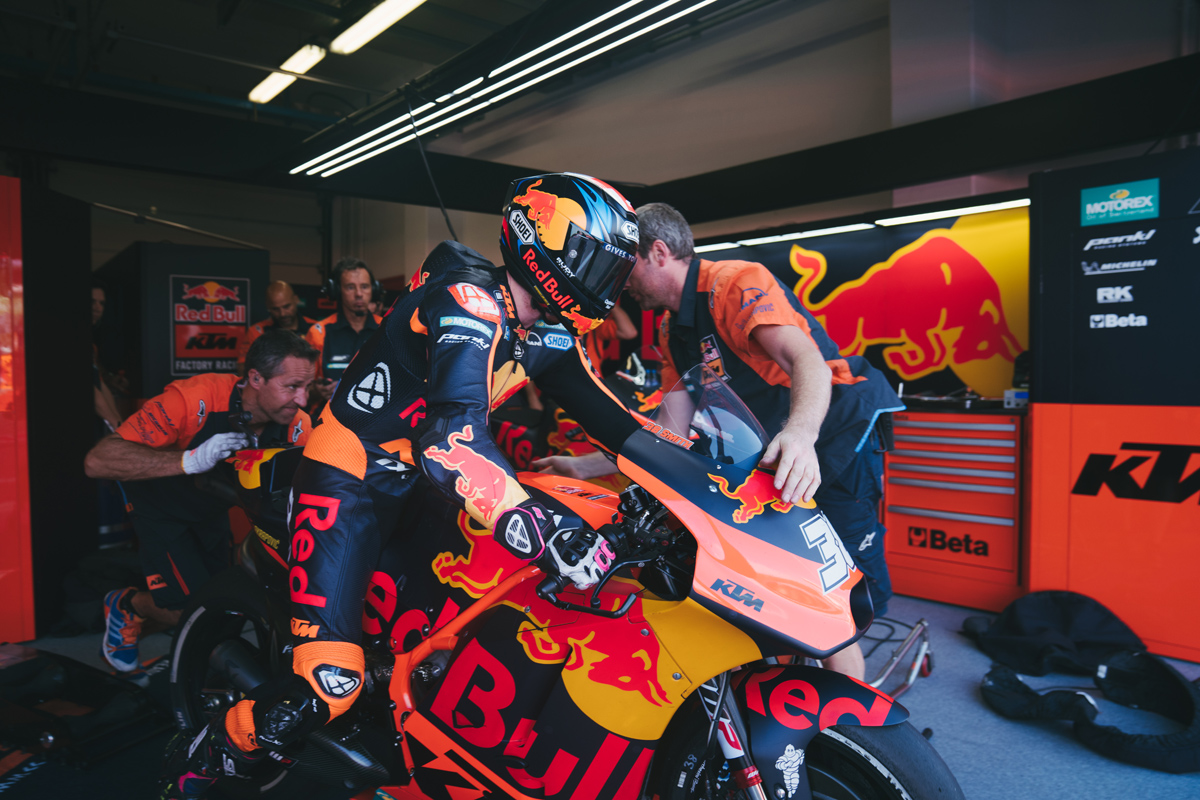
I assume the margin of hesitation when it comes to risk is much smaller when you are younger…
Oh you normally go over it and there is no hesitation. Not even a beat. As you get older that margin comes-in a little bit and in MotoGP even more because of the respect to the speeds we are running and the size of the motorcycles.
Was there a person you turned to or someone that offered a bit of guidance when it came to thinking about psychology?
The person who told me to read the book was my Mum. Your Mum obviously loves you and by recommending a book like that was probably her subtle way of saying ‘you’re an arse’. I was being told that at the racetrack but maybe I was being the same person at home. It probably needed my Mum to point that out – and directed at my Dad as well because we are the same type of person.
Your curiosity grew from there?
Massively. Once you realise how your brain works you become more ‘powerful’, let’s say. You feel more in control and less things affect you. You feel you can tap into other people, and instead of getting ‘closed doors’ or their barrier you can get around that. Once that happens then you can get other things. For example sponsorship deals or people’s knowledge or insight, those final percentages. You feel like you have a key to unlock other people’s potential and work different angles. That feeling is power and the sensation brings confidence.
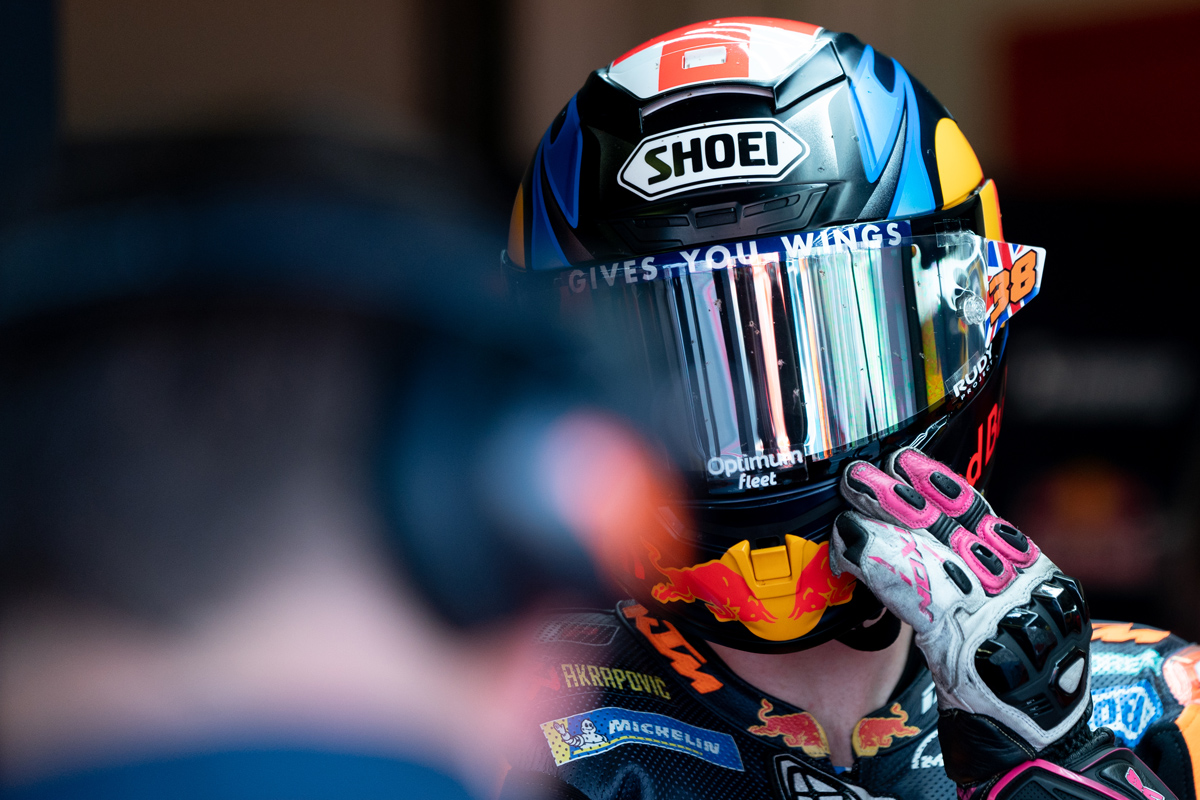
Can you give me an example of how you applied that?
In 2014 at the German GP I crashed five times. I wasn’t listening to anyone any more and I was going to do things my way and exactly how I wanted to do it. I was ignoring instinct and warning signs and I was convinced being stubborn was the solution in every sense possible: in terms of the way I rode, the way I felt and reacted and went about racing. If I hit my head hard enough against the wall then I’d get through. That hit me in the backside all weekend in Germany and I walked away from that track and the MotoGP dream was over. The door was closed. I wasn’t going to have a ride the next year and there were no other options available. I came back in Indianapolis a completely different person after spending four weeks by myself in California. I trained by myself, read the book, made the effort and never looked back. Indianapolis was the start of my streak of finishing every single race in the points, something like 25 Grands Prix. I went from a guy who crashed five times in one weekend to not crashing in 25 races and finishing 6th in the world championship that next year. It all stemmed off a process of understanding myself, people and how to go about racing.
What’s it like to exist in this paddock and on that plain of pressure and expectation?
I can manage it quite well. I’m the sort of person who doesn’t feel the stress when I’m here and I think that has come with age. I used to turn up and from the moment of coming in the circuit gate until I went home on Sunday I would not speak to anyone believing that this [approach] would get me success. Some riders are at the opposite end of the scale. Some forcefully have a McDonalds on a Wednesday before they get to the track to remind themselves that it doesn’t matter. Once you have done 90-95% of your preparation then McDonalds or an ice-cream is just a little reminder that the seriousness of it all can actually be taken away.
To be at 100% all weekend means by Sunday you are ‘done’. You have to tune-in and tune-out. I feel I have three stages: one, like this situation now where you are as chilled out as possible (while still remembering you have to be a bit careful about what you say), two is when I walk in the garage and there is another ‘level’ [of focus] and three is the final step of putting on the helmet. You have to learn to get ‘in and out’ of those three and it’s not always easy and takes experience and time and familiarity of the team. That’s why I like [Andrea] Dovizioso’s story and the fact he has been at Ducati six years and there is a lot of faith and continuity within the package and finally they got to the level where they wanted to be. It all takes time though and you cannot keep swapping around teams and groups to get that. It is always difficult for humans to deal with change, I think. People like routine and habits and that’s when they behave their best and when they are happy. The more you disrupt it then the harder it gets for the individual. You see it when someone changes a team; it can take four-to-six months to adapt and you don’t know why! It is almost a subconscious thing. It takes time to learn and become automated.
Another part of psychology and sporting performance are things like controlling anxiety…
I feel anxiety more when it comes to contract time and you’re not sure what is going to happen. You are aware how much it means: [your choice] is everything. You put so much effort into it and it’s the last thing you think about at night and the first thing when you wake up in the morning. I don’t care what anyone says; it is constantly on your mind. There are some days when it is less but you are always thinking. The biggest thing then is ‘controlling the controllables’. I cannot control what a team manager is going to do and what rider he is going to pick or what a manufacturer will decide about which rider fits their profile for the future. What I can control is how I conduct myself in the garage, in front of the media and how I perform out on the track. That’s all I need to worry about and let the others fall into place: which means you almost need to believe in fate and if things are meant to be! That’s where it is such a contradiction. But you have to believe in something, whether it’s god, fate, natural-born talent. Otherwise you’ll always second-guess yourself.
What about the practical use of it? Like a race start?
It’s a process. Right from the start to the first corner. If I hit all my marks and do everything right then its just following a formula. I need to get to the first corner and then I carry on.
The Ryder Cup in golf, Wimbledon in tennis: examples of environments where there is intense public scrutiny and it must be easy to choke without focus…
Yeah [pauses]. You can be so used to ‘following’ and ‘chasing’ your whole career that you almost don’t know how to lead. In Le Mans for my first podium: there were four of us and I was OK but when there were three and I knew I had a podium chance I freaked out. It was only a lap and I managed to regain control of myself but it meant I lost half a second and couldn’t fight for the win.
How does that feel when it happens?
You cannot ride! You forget how to do it and grip the handlebars and tense-up. You don’t flow or breathe and you cannot control it. A little bit of self-doubt can make you choke in this world and small things make a difference: the bike, breathing.
When you retire from MotoGP do you think there will also be some relief? A respite from all the demand and constant drive to improve?
I’ll miss everything except for Sunday and that window from 14.00-14.45 and all that pressure of trying to make everything come together at the right time to get the best possible result. I also won’t miss the faces of the people when it doesn’t go quite right and the personal feeling of failure and for the project and all the money that is being spent. It is a real weight on the shoulders and can be a hard thing to swallow; the fact that all the effort and everything that has gone into those forty-five minutes hasn’t quite worked out. I won’t miss that at all; some people cannot let it go for days on-end. It affects your life, morale and can cause depression. I’ll miss the process of trying to create something special. I don’t think I can completely stop this [kind of lifestyle] if I’m honest. I will want to be part of creating something. I don’t want to exist and just tick-over in this world. I want to have an impact.
By Adam Wheeler @ontrackoffroad
Photos by CormacGP @cormacgp

